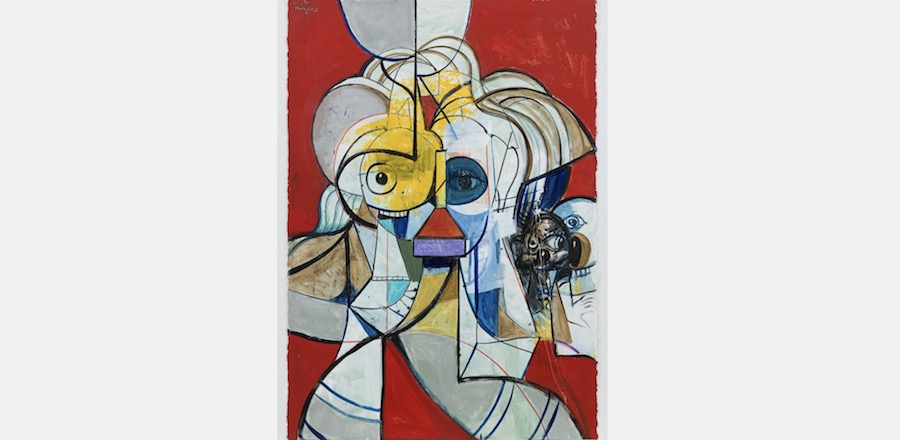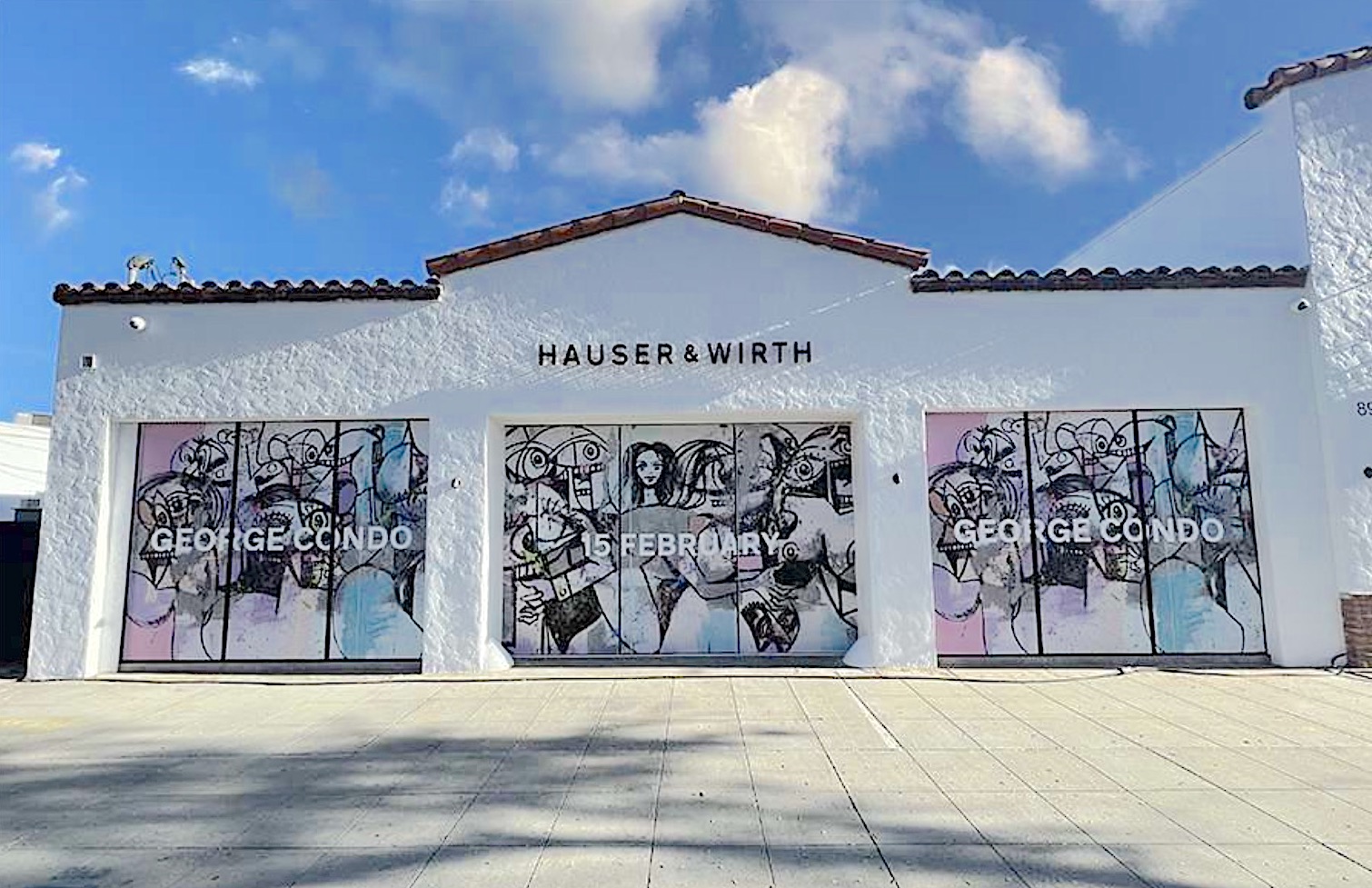Hauser & Wirth, one of the leading international galleries operating in the UK, is facing criminal prosecution. The allegation states that the gallery made a George Condo pastel available to a collector connected to Russia after the invasion of Ukraine—thereby breaching UK sanctions. It’s an astonishing moment, not least because it’s the first time the Government has moved to prosecute under the luxury-goods ban aimed at limiting Russian access to Western cultural capital.
According to The Times, the work in question—Condo’s Escape from Humanity (2021)—was allegedly made available to Alexander Popov, a collector with a well-known family foundation, at some point between mid-April and the end of December 2022—that date range matters. By April, the Department for International Trade had already imposed a sweeping ban on exporting luxury goods valued at £250 or more to Russia. The rules are blunt, and intentionally so: paintings, sculpture, jewellery, design objects, high-end fashion—virtually anything with cultural or aesthetic value—fell under the umbrella.

Popov himself is not sanctioned, and no one is accusing him of wrongdoing. That nuance, however, doesn’t insulate the gallery. UK law not only targets individuals; it also prohibits the supply of luxury goods to anyone connected with Russia. The phrasing is maddeningly broad, and many galleries have spent the last two years quietly scrambling to navigate its implications.
HM Revenue & Customs has confirmed that this is their investigation and that it’s the first prosecution of its kind. That alone has sent a tremor through the industry. For years, sanctions compliance has hovered at the murky edges of the art trade—lots of whispered warnings, very little enforcement. Now the Government appears ready to test the legal teeth of its own legislation.
Hauser & Wirth is pushing back hard. The gallery says it “strongly contests” the charge and will plead not guilty. The statement is measured, but the subtext feels unmistakably sharp: Hauser & Wirth insists it has complied with all legal obligations and that this is a single alleged instance, involving a non-sanctioned individual. No further comment, they say, because the case is ongoing. A familiar art-world barricade.
The timing, though, is awkward. Just last week, George Condo announced he was leaving Hauser & Wirth to return to Skarstedt—his former gallery, which represented him from 2004 to 2019. He will continue with Sprüth Magers, whose relationship with him dates back decades. Hauser & Wirth insists the departure is unrelated to the case. Perhaps so. But in a sector where relationships can be as fragile as wet paper, the optics are less than ideal.
The case also touches on another corner of the ecosystem: the London-based shipping company Artay Rauchwerger Solomons, formerly known as Art Logistics Ltd., which is also accused of breaching the luxury-goods ban between August and December 2022. The firm went into voluntary liquidation last year—another loose thread in a story that’s beginning to feel like a snapshot of an industry where compliance has lagged far behind global politics.
If convicted, the penalties are severe: up to six months in prison and an unlimited fine. These sanctions laws were drafted in haste and then modified in a hurry as the war continued, but they carry real weight. The days of shrugging off political risk as someone else’s problem may be over.
The case was heard briefly at Westminster Magistrates’ Court before being adjourned. It now moves to Southwark Crown Court for a pre-trial hearing on 16 December, where the real fight will begin. The art world, prickly and reputation-conscious at the best of times, will be watching closely—if not anxiously—to see how aggressively the UK government intends to enforce its own rules, and what that might mean for a market built on secrecy, speed, and a great deal of trust behind closed doors.

